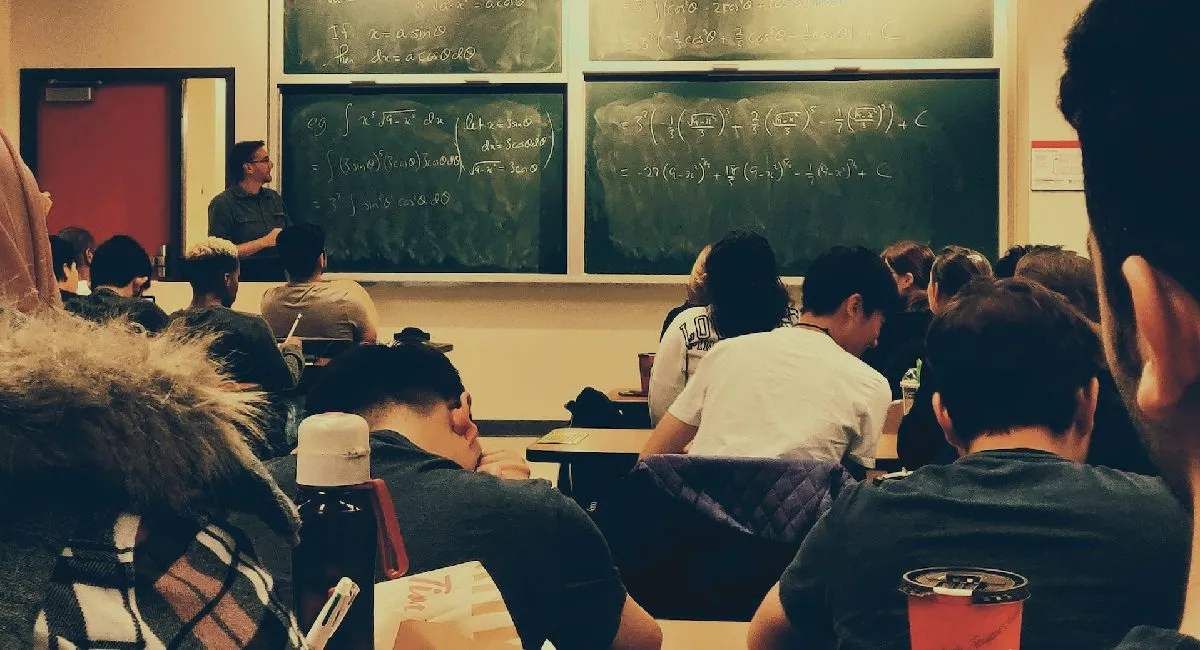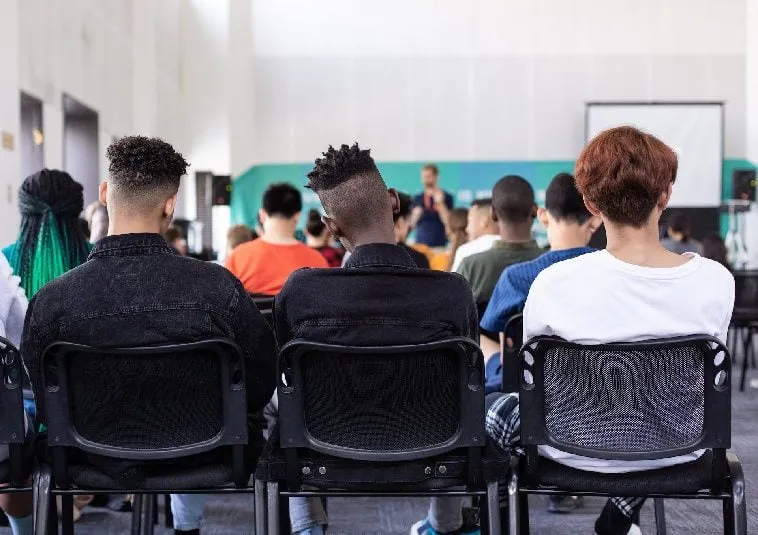F1 Visa For Nigerians
Nigerian students may travel to the US on the F1 Student Visa to enrol in US educational institutions.
IAS can help you to apply for an F1 visa. Call our Lagos office on +2342013438882 or +44 (0)333 414 9244. Or message us online.
Read our 1001 reviews
Request a call back from our immigration experts
Interested in Studying in the US?
We have a proven track record of assisting numerous Nigerian students in obtaining their student visas. If you’re considering studying in the US and require guidance on how to get started, feel free to contact us for expert assistance. Allow us to handle the details and provide you with comprehensive support.
Nigerian Emigration
For Nigerian emigration matters, please call +44 (0) 3316300929 or +2342013438882
Other Immigration and Emigration Matters
For immigration/emigration to/from other countries, please call:
US – +1 844 290 6312
Ireland – (+353) 061 518 025
UK – (+44) 333 4149244
Overview of the F1 Visa
You may enter the country with the F-1 Visa (Academic Student) if you’re a full-time student at an approved university, college, seminary, conservatory, academic high school, primary school, or other academic institution, as well as in a program for language study. You must be registered in a program or course of study leading to a degree, diploma, or certificate, and your university must have official U.S. government authorization to admit foreign students.
Students from Nigeria may visit the United States on a non-immigrant visa called an F-1 student visa if they plan to attend an educational institution that has been approved by the Student and Exchange Visitor Program (SEVP). It is the most common kind of student visa for those who want to study at a university or college in the United States, and the only time you can apply for an F-1 visa is when an approved school in the United States approves your application to study there.
Your length of stay in the United States as an F-1 student will be contingent on the academic course of study that you choose to pursue. The termination date of your program will be included on the I-20 form that is given to you by the college or institution that you desire to attend. In order to stay in the United States for the allotted amount of time, you will need to get your degree before the date that is given as the expiry date. This will give you an idea of how long you will be allowed to do so.

Qualifications for the F1 Visa
In order to qualify for an F1 visa, applicants must meet and prove several strict criteria.
Nigerian Residence
Applicants for an F-1 visa are required to have a residency in Nigeria other than the one in which they plan to work when they finish their studies.
Sponsoring Institution
During the time that you are in the United States on an F1 visa, you are only permitted to enrol in classes at the school that sponsored your visa application.
Secure enrollment to a school that accepts SEVP students. The Student Exchange Visitor Program (SEVP) maintains a list of schools, colleges, and other institutions that welcome international students and satisfy the eligibility requirements. Before registering to your preferred schools or universities, it is recommended that you first check the SEVP to determine if they are listed.
Financial Support
All applicants are required to provide proof that they have enough assistance financially; the Study USA Financing Guide may assist you in getting ready for the financial aspects of your time spent away from home.
Relationships with Nigeria
All candidates are required to provide evidence that they have deep links to the nation in which they were born. The following are examples of strong links, albeit this list is not exhaustive:
- A letter of employment offer following completion of one’s academic obligations
- Having assets (such as a home, land, cars, and so on)
- Accounts at banks
- Family
Admission Requirements for F1 Visa
If you want to apply for an F-1 student visa, there are a few regulations you should be aware of. The following conditions must be satisfied for your application to be approved:
- Institution certification: SEVP Immigration & Customs Enforcement must authorise the institution or university where you want to study.
- Full-time enrollment: While your academic year is in session, you must be registered as a full-time student at the school.
- English language competence: You must either have the minimum level of English language proficiency needed by the institution you are attending, or you must be enrolled in classes that will help you get there.
- Enough Funding: You must demonstrate that you have the resources necessary to pay for your academics and living costs while you are studying in the US.
- Valid passport: At least six months should elapse following the end of your program for your passport to remain valid for travel to the US.
- Home country residency: In order to return there after receiving your degree, you must have a residence there.

Application Process for the F1 Visa
Obtain Your Admissions Paperwork from The SEVP Organization
They will need to finish a few processes before you are eligible for the F1 visa once you apply and are admitted to the institution you wish to attend. The Form I-20, Certificate of Eligibility for Nonimmigrant Student Status, is the most crucial document you need. You won’t be allowed to submit an F1 student visa application or appear at your interview without this paperwork.
DS-160 Application Submitted Online
Once you have received your Form I-20, you may begin the standard application procedure. This involves filling out the online DS-160 form with the correct data on your visa status.
Payment of The Application Cost
The student visa application price is $185. You must pay this charge and get a receipt so that you may use it later to collect the paperwork for your interview. Depending on your place of origin and the US Embassy you are applying from, you may need to pay extra costs.
Deposit The SEVIS I-901 Charge
Your school registers you in the Student and Exchange Visitor Information System (SEVIS) the moment you are accepted by the SEVP institution. There is a SEVIS I-901 charge for complete registration. The price is $200 for the F1 visa.
Set A Date for The F1 Visa Interview
You will need to set up your interview after submitting the DS-160 form and paying the associated expenses. Before receiving your student visa, you must attend the interview. Due to the US Embassy’s busy schedule, try to plan it as early as possible to avoid any delays. You will get an appointment letter for the interview when you book it, which you will require throughout the application procedure.
Submit The Document With The Required Proof
You should gather your file with the necessary student documentation before going to your interview.
Attend The Interview For A Student Visa
Your reasons for travelling to the US and the school you want to attend will be a major focus of the questions asked during the student visa interview. When you finish your degree, the interviewer will attempt to determine whether you want to go back home.
Documents Required for the F1 Visa
The required documents for F1 Visa:
- Your legitimate passport
- Form DS-160 for applications for nonimmigrant visas
- Two photographs that adhere to the US Visa Photo Requirements are required
- Evidence of payment for the F1 visa charge
- Form I-20. Form I-20 indicates the quantity of funds required to finance your education and living expenses in the United States. You must submit documentation proving that the funds are promptly available. This can be accomplished by submitting documents such as:
- Bank statements from the previous three years
- Tax documents for the past three years
- Payslips from prior employment
- If you have been awarded a scholarship, you must also provide documentation
- The payment of a semester’s or year’s worth of tuition is also recommended, but not required
- If you are being supported or sponsored by a U.S. citizen or permanent resident, you must submit Form I-134, Affidavit of Support, and bank statements for the past three years
- If you are financing your US education with a loan, you must also provide documentation of the loan’s approval
- Evidence of your previous education and present qualifications:
- Original recordings
- Scores on standardised examinations (TOEFL, IELTS, GRE, GMAT, etc.)
- Acceptance letters from colleges and universities that accepted you
- Previous degree diplomas
- Health insurance documentation for international students.
Common Reasons for F1 Visa Denials
Intention to Pursue a Career in the United States after Completing Schooling
This is the most typical reason why a visa officer may decide to deny your application for an F1 visa, and it is also the most essential consideration that they take into account during the interview. It is not acceptable for the visa officer to even entertain the remotest possibility that you do not intend to go back to your native country, since this constitutes grounds for denial.
A lack in sufficient sources of financial support
It’s possible that your application wasn’t accepted the first time around due to the financial position you described in your application. If you do not have enough financial assistance, then you will have to get a job in order to finance your education, which goes against the purpose of obtaining a student visa in the first place. The person in charge of granting your visa will want to verify that you have sufficient finances to cover the costs of both your schooling and your living expenses while you are in the country.
Untrustworthy Academic Institution, Degree, and Goals
It is essential that the visa officer has no reason to doubt the veracity of your academic qualifications and that they do not raise any red flags. There is a possibility that the visa officer who is reviewing your application may cast doubt on the legitimacy of the institution, program, or degree that you have applied for. They want you to show that you are a credible student in order to satisfy their requirements.
Bad Result in Interview
The interview plays a significant role in the selection process for the job. Because there is a lot riding on the outcome of the visa interview, you need to give it your whole attention. If the interview was the reason you were not selected for the position, you will need to do a self-evaluation and compile a list of the ways in which you can improve your performance in future interviews. For instance, you may need more experience maintaining eye contact and being able to provide spontaneous responses to inquiries in the form of well-thought-out phrases.
Maintaining Valid F1 Visa Status
It is possible that your visa will be accepted for a period of time that is less than the period that you will spend attending school in the United States. If it takes one year to complete your educational program, the Embassy will most likely issue you a visa that is valid for the same amount of time. If you are only granted a visa valid for one year but your degree program is two years long, you will need to file for a renewal of your visa once the first year has passed. In this scenario, renewing the F1 visa is the greatest choice that can be made.
If you enter the United States and are issued an I-20 form and an I-94 form, the length of time that your F1 visa is valid for corresponds to the length of time that is written on both forms.
It is recommended that you stick to the same process even if you are only renewing your visa. It is possible that you will be exempt from the interview due to the fact that you have already participated in one and that you want to continue your studies for the remaining years in order to get your degree. If this is the case, you may be able to acquire a waiver.
In the event that your visa is accepted, you are permitted to leave for the United States thirty days before the start of your program. You are unable to enter the United States before that time.
Employment Options for F1 Visa Holders
Since your visa is a student visa and not a work visa, you are allowed to work as an F1 student; however, you are only allowed to do so for brief periods of time. On campus employment is permitted on a part-time basis throughout the academic year and on a full-time basis during vacation periods. You have two choices if you wish to get a job off campus if you choose to do so.
You are qualified to change your status if, for instance, you find a job that needs a visa other than an F1 visa. If this is the case, then you are entitled to change your status. It will simply need you to follow the guidelines provided by the United States Citizenship and Immigration Services (USCIS), as well as those provided by your company or another petitioner.
Extending or Changing F1 Visa Status
After the expiration of your visa, you will have a grace period of sixty days during which you may make preparations for returning to your native country. If the length of time you want to spend attending school in the United States exceeds the validity period of your visa, you will need to submit an application for a visa renewal or extension. Only if you can demonstrate that you will be finishing your degree in the United States and that you want to return when it is finished will the extensions be granted to you.
Travelling Outside of the US on an F1 Visa
Students with F1 visas are often required to go outside of the country. They travel when they are allowed to take breaks from school or in the event of an emergency. Travel may take place either inside their own country or to another country entirely.
You need to complete specific requirements before you may plan and book your trip if you are a student with an F1 visa who wishes to go outside of the country. The purpose of the instructions is to assure that they will be able to re-enter the United States.
How Can IAS Help?
A lot of young people from Nigeria have the ambition of attending college in the United States. Our immigration lawyers are dedicated to providing them with assistance in turning their desire into a reality. The procedure of applying for a visa to enter the United States may be difficult, and it is simple to miss out on certain information or supporting papers. Unfortunately, making errors of this kind may have a detrimental impact on the outcome of your application and may result in the denial of your F1 Student Visa. If you retain the services of one of our immigration lawyers, you will be able to ensure that your application is comprehensive and that your portfolio of evidence has all of the documentation that immigration authorities could want.
At IAS, we will evaluate whether or not you meet the requirements to get an F1 Student Visa, and we will walk you through each step of the application process, beginning to end. We will provide you with help during the application process, and we will be available at all times to answer any questions that you may have.
Make an enquiry online or give us a call right now at +2342013438882 or +44 (0) 3316300929 to learn more about the ways in which we might be of assistance to you.
Table of Contents
Table of Contents will appear here.Legal Disclaimer
The information provided is for general informational purposes only and does not constitute legal advice. While we make every effort to ensure accuracy, the law may change, and the information may not reflect the most current legal developments. No warranty is given regarding the accuracy or completeness of the information, and we do not accept liability in such cases. We recommend consulting with a qualified lawyer at Immigration Advice Service before making any decisions based on the content provided.
What our clients are saying
How our UK Immigration Lawyers can help
At the Immigration Advice Service our lawyers specialise in a wide range of UK visas, nationality and asylum applications and have represented clients in various successful complex and high-profile cases.















